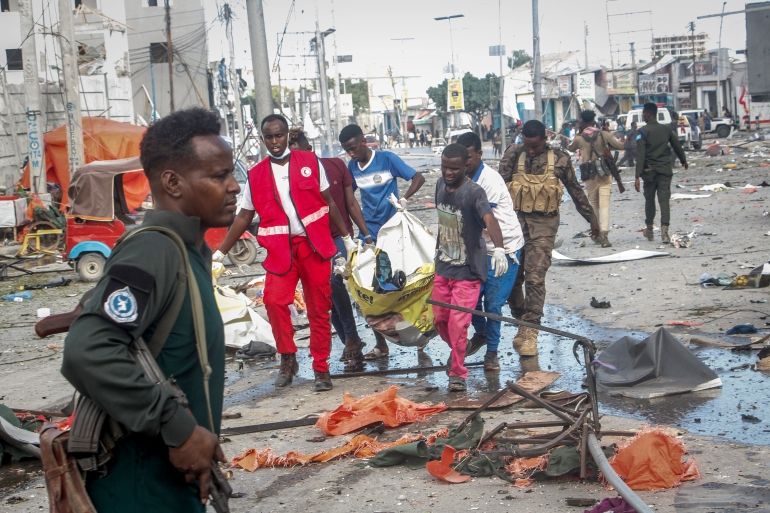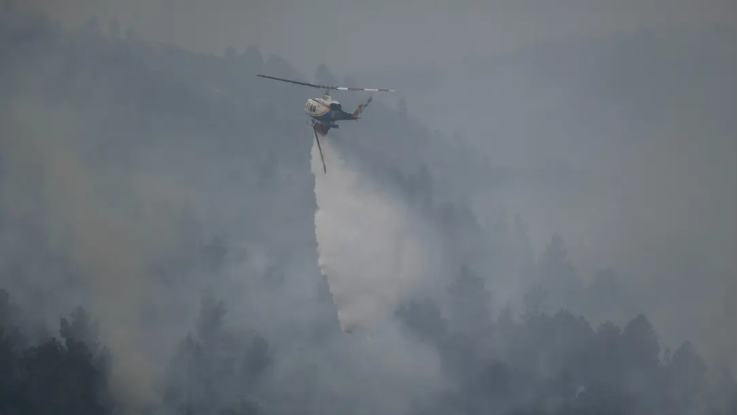Somalia: Over 100 Killed In Mogadishu Car Bombings
At least 100 people were killed and more than 300 injured in two car bomb attacks in the Somali capital Mogadishu on Saturday, according to Somalia's President Hassan Sheikh Mohamud.

Facts
- At least 100 people were killed and more than 300 injured in two car bomb attacks in the Somali capital Mogadishu on Saturday, according to Somalia's President Hassan Sheikh Mohamud.
- The al-Qaida-affiliated Islamist group al-Shabaab has reportedly claimed responsibility for the twin bombings. The first blast targeted the Somali Ministry of Education, while the second explosion occurred minutes later as first responders arrived at the scene next to a busy junction.
- The latest bombings are the deadliest terrorist attacks in the country since a truck bombing at the same site killed more than 500 people in Oct. 2017. In August, a 30-hour al-Shabaab hotel siege in Mogadishu left at least 20 people dead and dozens wounded.
- In August, Pres. Mohamud announced a "total war" on the insurgent group. The latest attacks came as government forces recently launched a major countrywide offensive against al-Shabaab strongholds, with Mogadishu also aiming to wrap up the group's financial network and recruit clan-based militias.
- While the extremist group reacted by killing major clan leaders to discourage a government-backed uprising, Mohamud and other government officials recently met to discuss expanded measures to counter violent extremism in the country.
- Meanwhile, the Somali administration requested that Washington loosen restrictions on US drone strikes in Somalia, which amount to 11 so far this year. The Biden administration recently approved the redeployment of 450 American troops to Somalia.
Sources: CNN, Reuters, Al Jazeera, Guardian, NPR Online News, and New York Times.
Narratives
- Narrative A, as provided by Al Araby. The recent terrorist attacks underscore that the new Somali government may fail in defeating al-Shabaab despite their efforts and US military support. A successful fight against al-Shabaab requires a holistic approach. So far, however, the government has failed to implement a comprehensive strategy that includes not only military measures but also the creation of economic prospects, the fight against corruption, and the creation of a viable legal system.
- Narrative B, as provided by EastAfrican. Despite the recent bombings, al-Shabaab's days are numbered, as the Somali people are more united than ever in their aim to defeat terrorists. The government is well aware that this fight requires an integrated strategy that includes not only military action but also focuses on targeting terrorists' financing as well as humanitarian aid and economic needs. Victory on the ground will make sustainable development possible.






